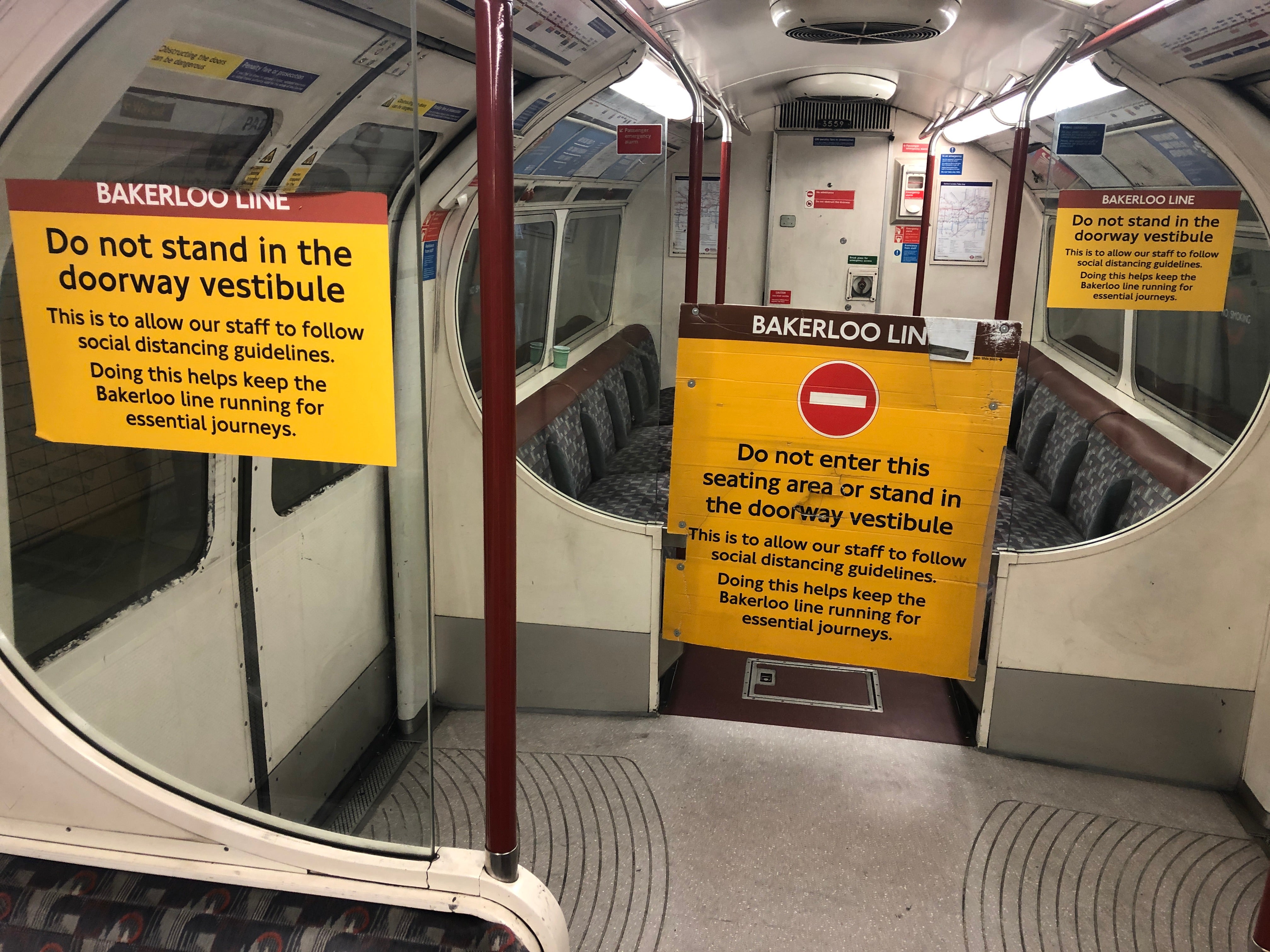‘Do not enter this seating area’: Some tubes and trains keep Covid blocks in place
Exclusive: ’Doing this helps keep the Bakerloo Line running for essential journeys,’ commuters are told

Your support helps us to tell the story
From reproductive rights to climate change to Big Tech, The Independent is on the ground when the story is developing. Whether it's investigating the financials of Elon Musk's pro-Trump PAC or producing our latest documentary, 'The A Word', which shines a light on the American women fighting for reproductive rights, we know how important it is to parse out the facts from the messaging.
At such a critical moment in US history, we need reporters on the ground. Your donation allows us to keep sending journalists to speak to both sides of the story.
The Independent is trusted by Americans across the entire political spectrum. And unlike many other quality news outlets, we choose not to lock Americans out of our reporting and analysis with paywalls. We believe quality journalism should be available to everyone, paid for by those who can afford it.
Your support makes all the difference.Five months after lockdown rules in England were eased and use of public transport for non-essential reasons became legal, some train operators are still blocking off seats as a Covid precaution – potentially adding to rush-hour crowding.
On the Bakerloo Line of the London Underground, a dozen seats in the carriage at either end of the train are cordoned off.
Passengers are told: “Do not enter this seating area or stand in the doorway vestibule. This is to allow our staff to follow social distancing guidelines.
“Doing this helps keep the Bakerloo Line running for essential journeys.”
The instruction, originally designed to protect drivers, take 24 seats out of public use and increases crowding at busy times.
It also appears directly to contradict the advice offered by Transport for London (TfL), which runs the Tube, to passengers.
TfL says: “Since September 2020, Imperial College London has run monthly tests for all virus variants on the transport network.
“Sampling has taken place at a variety of stations and on buses and trains – with the locations changing for each round – and swabs taken from heavily touched areas and air tested for any airborne traces.
“None of the tests have found any traces of the virus.”
The Bakerloo Line runs from Elephant & Castle in south London through the city centre to the northwestern suburbs. It links four key main line stations: Waterloo, Charing Cross, Marylebone and Paddington.
The line has the oldest rolling stock on the network. Trains date from 1972 and have no direct access for drivers from the platform to the cab. Instead, they must use passenger doors.
Frank Ibe, head of Line Operations for the Bakerloo and Victoria lines, said: “The exclusion zones on Bakerloo line trains were put in place last year due to the unique way Bakerloo line drivers enter the driving cab of the train.
“We are reviewing this arrangement with our staff and trade unions and hope to soon remove the exclusion zones in line with government guidance.”
Overground trains in northern England and East Anglia also have seats blocked. The train operator Northern is telling passengers: “This part of the train is out of use to allow the conductor to carry out their duties.”
One passenger, Paul Ffelan, tweeted: “Why is this cr*p still happening?
“All the adverts are running to attract custom back to rail, and they do this on a weekend service to BPN [Blackpool North] – during the illuminations on a warm, dry day.”
A spokesperson for the Rail Delivery Group (RDG) said: “Throughout the pandemic, train operators have been prioritising the safety of their passengers and colleagues.
“The best ways to do this have changed over time and vary between companies depending on things like the different roles of on-board staff and how train carriages are set-up.
“Further changes, such as removing staff-only areas of seats on the handful of services where they remain, will continue to be made based on the level of covid risk.”
Last week the Rail Delivery Group (RDG) revealed that commuting by rail, which collapsed as the coronavirus pandemic took hold, is still two-thirds down on the level in early 2020.
Join our commenting forum
Join thought-provoking conversations, follow other Independent readers and see their replies
Comments